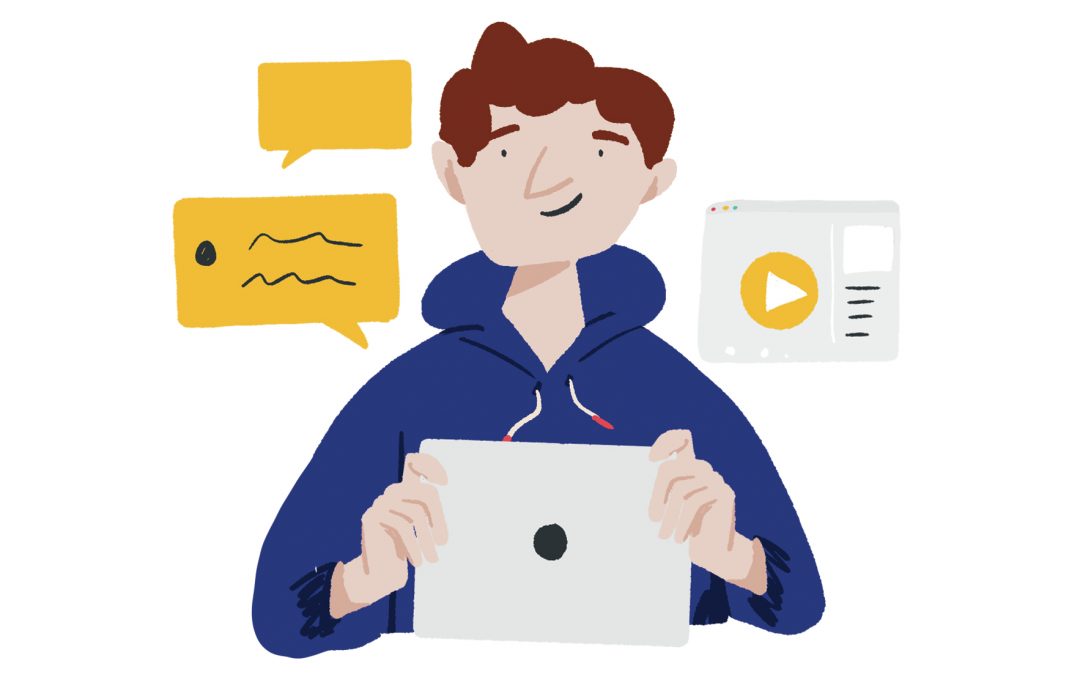With most teacher assessments submitted and the summer holidays fast approaching, it’s time for lots of teens to switch gears. Instead of having deadlines coming at them from all angles, the rest of the summer term is a time for them to take a longer view and get ready for the next academic year. While the school year is still in play, there’s no time like the present for them to repair any damage the pandemic has done to their learning and look to the future.
If your teen is finding themselves at a loose end right now, we’ve got four key ways for them to make the most of the Summer term – let’s dive in.


- Locate learning gaps – and fill ’em in
- Explore career options
- Research their next steps
- (If they’re at A Level) Start prep for their UCAS personal statement
1. Locate learning gaps – and fill ’em in
While your child’s still going into school each day, now is a great time for them to chat with their teachers about where they are in each subject. Working out where their strong points and weaker points are with them at the end of class, or having a look through the syllabus for each course at home with you or a tutor is the first step to making a catch-up plan. Whether they’re halfway through their GCSEs or A Levels, or stepping up to A Levels after the summer, going back over previous course material for subjects they’re taking next year is the best way to prepare for the challenges ahead.
Once they’ve identified where they need to revisit, getting advice from their teachers, extra help from a tutor and using some trusty online learning resources that are out there can make them feel less intimidated by the tasks in front of them.
2. Explore career options
Aside from curriculum learning, if your child is in their last few years of school, a great way to use any free time they’ve found themselves with is to research career options. You can have a read here about how to support your teen with their career planning, and in our recent webinar we heard some fantastic advice from senior careers advisors. It’s a great idea before the end of term for your teen to have a chat with their school careers advisor about their interests and plans – it’s literally their job! This is also a great time for your teen to reach out to any companies who might offer them work experience or a summer job – there’s nothing to lose in asking, and – as people say – if they don’t ask they won’t get.
3. Research their next steps
Whatever stage of school your child is at, taking time to research, have a think and talk to a few people about what they could do when they finish school is really valuable for them. If they’re interested in applying for university or college, they could have a look online and sign-up for some virtual open days – or even real ones if they’re easy to travel to.
If they’re keen on going down the apprenticeships route, they could have a look on a jobs platform like Multiverse, the National Apprenticeships Service, or even email some employers to see if they offer apprenticeships – everyone loves a keen bean.
4. (If they’re at A Level) Start prep for their UCAS personal statement
If your teen is finishing year 12 and looking to apply for university next year, now is the best time for them to start preparing for their personal statement. Depending on what they’re thinking of applying for, reading any relevant books which are outside their school curriculum is a good place to start – they can use extra reading like this to stand out from the crowd.
If there are any online lectures or Massive Online Open Courses (aka MOOCs) on a site like Coursera that are relevant to the degree they’re interested in, attending a couple of those and making notes about what they found interesting are also excellent ways to form the bulk of their personal statement. They help show university admissions officers that your teen really loves the subject and will make a great undergrad – and this term is the best time for them to get ahead.
If your child is unsure about which courses and universities to apply for, or where to even start with a personal statement, our tutors can give them personalised UCAS support and mentoring. They’re all from UK universities, so they recently went through exactly the same admissions process as your child, and they can share their experiences of university life and what their degrees are like. You can have a look for a tutor who’s at a university and/or studying for the same course that your teen is interested in, and meet them for free before you book in time with them.
Last but not least, teens should of course have some fun and look after their wellbeing. As valuable as it is to make the most of this time for their learning, it is – as always – about finding the right balance so they can stay happy, healthy and excited for what’s next.




